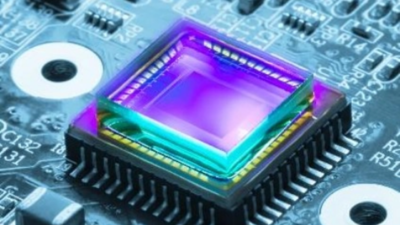
Israeli innovations have significantly impacted many aspects of our modern world. What sets Israeli technology apart as a game changer? It appears that a blend of innate curiosity, a proactive mindset, entrepreneurial vigor, and a profound desire to enhance global well-being underpin many of these groundbreaking Israeli inventions. Featured here are just a handful of the numerous Israeli patents that have reshaped our lives.
Bionic Walking Assistance: ReWalk
The ReWalk robotic exoskeleton was invented in 1997 after a car accident left the innovator a quadriplegic. ReWalk features a wearable robotic suit that motorized joints and a computerized system that allows the wearer to stand, walk and even climb stairs.
The device is available for home use since 2014 (received FDA and CE clearance and covered by the American US by Medicare) and is also in use in some hospitals for patients recovering from strokes and spinal cord injuries. The company also developed ReStore – a powered, lightweight soft “exo-suit” intended for the rehabilitation of individuals with lower limb disability due to stroke.
Real-Time Traffic Reports: Waze
No more traffic jams? Three Israeli entrepreneurs developed a commercial-free digital database to help drivers shorten travel times around Israel. The app users report road accidents, street hazards, police activity, and even house numbers and gas prices. The software works collaboratively and is updated by the community so that when new information is obtained from a user, the data is used to constantly update the dynamic maps and offer people directions and the fastest routes to their destination. Since it’s set-up in 2006 the company’s app – called Waze – was acquired by Google and has been used by 140 million people a month worldwide.
No More Car Bumping: Mobileye
Cameras and software tell you when you were coming too close to another driver. This is thanks to one of the impressive success stories of the Israeli automotive technology – Mobileye. The Israeli company developed driver assistance systems and autonomous driving technologies that make driving safer. In 2017, Mobileye was acquired by Intel for $15.3 billion – the largest acquisition of an Israeli company to date. Today this technology is used by over 25 automakers worldwide, including BMW, Ford, Honda, and Volkswagen. Today Mobileye is also developing a self-driving car that can operateg in complex urban environments.
Safe Sleep: BabySense
How often do worried parents check on their sleeping baby in the other room? This isn’t just about anxiety – most horrific tragedies happen through cradle death, baby’s choking on a toy, etc. The BabySense device can monitor a baby’s breathing without having to enter the room and has probably already prevented a great many deaths with sleeping babies. The device has an auditory and visual alarm that monitors movement or breathing in sleeping tots, and is activated the second it senses some irregularities. A loud sound and a visual alert will be immediately activated in such cases, calling for intervention by parents.
Inspecting Your Body: Pillcam
A camera you can swallow: The most groundbreaking endoscopy device lies inside a capsule the size of a jellybean. It’s the world’s smallest live video camera, measuring just 0.99 mm. Once swallowed, the PillCam device strolls in the patient’s intestine and takes pictures that are transmitted via sensors attached to the patient’s body from outside. Pillcam, developed by an Israeli engineer and an Israeli gastroenterologist, was proven efficient in diagnosing diseases of the digestive system. In 2013, Covidien acquired Israeli PillCam maker Given Imaging for a total sum of $860 million.
Drop By Drop: Drip Irrigation
Regulated watering was a common problem of farmers until the Netafim factory method stepped in. The two innovators, father and son, observed a tree that seemed to be growing without a trace of water – thanks to a leaking underground pipe feeding it small amounts regularly. The accidental discovery led them to inventing modern drip irrigation – a technique in which a controlled amount of water is released through plastic perforated pipes near the roots of plants, enabling each plant to receive the right amount of water for its growth. The method reduced water usage and changed the world of agriculture, as it makes farming possible in arid regions worldwide.
ICQ Instant Messaging
Decades before WhatsApp, millions of people on the internet had no convenient way of having personal conversations – chat rooms within discussion groups were the only options. Into this niche stepped the first online instant messenger service – ICQ (short for “I seek you”). The program, developed in 1996 by an Israeli company started by four young programmers from Tel Aviv, allowed users to sign up and create accounts, have private conversations, meet new people and more. This model of quick online communication was followed by other popular instant messaging services such as AIM, Yahoo Messenger and Google Talk. In 1998, AOL acquired ICQ for a total sum of $400 million.
No-Worries Save: USB
Remember Floppy Disks and computer CDS? These low-capacity data savers were the standard for a couple of decades. The nineties brought an Israeli breakthrough, with USB flash drives by M-Systems, also called “memory sticks”. The disk-on-key allows convenient and compact information use and transfer from one device to another. The USB flash drive’s tiny size, long durability, and high convenience have made it an essential tool in today’s fast lane digital age. This concept of compressed “data that fits in your pocket” has led to developments such as SIM cards, camera memory disks and more.
Missile Protection: Iron Dome
Imagine a missile defense that detects incoming short-range rockets and sends a real-time counter-missile to meet and destroy the danger while still in the air. Developed by two Israeli firms—Rafael Defense Systems and Israel Aerospace Industries—with US support, Iron Dome has a 97% accuracy in destroying missiles launched to strike population centers in Israel. As soon as a rocket is launched by the enemy, the radar station detects and tracks its course. It has a range of up to 43.5 miles, and immediately neutralizes the enemy rocket before it causes damage to civilians or property. The “Iron Dome” was deployed in southern Israel in 2011, and has intercepted thousands of rockets since then, saving the lives of many Israeli civilians.
Copaxone
Multiple sclerosis (MS) treatment has undergone a big bang: Copaxone, a breakthrough medication for MS, was developed by an Israeli biochemistry research team. Following patent registration in 1971, clinical trials showed significant reduction in MS relapses. The unique drug received FDA approval in 1996 and is now the world’s top-selling treatment for multiple sclerosis, marketed by Teva. It has provided relief to thousands of MS patients in 47 countries by reducing the frequency and severity of relapses. Today, Copaxone is one of the most widely prescribed MS medications globally.
Online Phone: VoIP
The best-known way of calling people on the phone over the internet has been Skype. But way before Skype, the protocol that allowed such practices to come into existence was developed. It’s called Voice over Internet Protocol (VoIP), and it was developed by an Israeli company called VocalTec. VoIP allowed anyone to call any telephone in the world — right through their Internet-connected microphone. The technology could transmit voice from one computer terminal to another telephone anywhere in the world.




